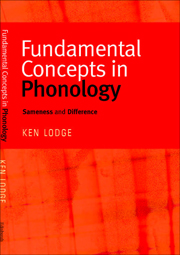Book contents
7 - Panlectal grammars
Published online by Cambridge University Press: 05 August 2013
Summary
It is very doubtful that one can give any clear or useful meaning to the ‘everyday sense’ of the term ‘language’
(Chomsky, Rules and representations)Introduction
It is generally assumed that we know which language is which and that consequently we can give a name to each one. But let us take this question of what English is by considering a few simple answers to see if they are sufficient. Firstly, we may say that English is the native language of those born in England. This is obviously too narrow because many speakers in Scotland, Wales, Ireland, Canada, the United States, Australia, New Zealand and South Africa have English as their native language. So, we cannot equate a language with a country. English also has the status of a second language, a lingua franca, in many countries. This is not primarily to enable the speakers to communicate with native English speakers, but with compatriots who have a native language other than their own. This situation obtains in parts of Africa; for instance, in Kenya English is the language of those in higher education, Kiswahili is the language of Kenyan nationality and the many ethnic languages are local, tribal markers, for example, Luo, Kikuyu, Kalenjin. In addition, English serves as an (if not the) international means of communication in many areas of commerce and travel, for instance. It is the lingua franca of most of the world. We can see from this that English has long outgrown its parochial functions of everyday life in the British Isles.
- Type
- Chapter
- Information
- Fundamental Concepts in PhonologySameness and Difference, pp. 120 - 142Publisher: Edinburgh University PressPrint publication year: 2009



